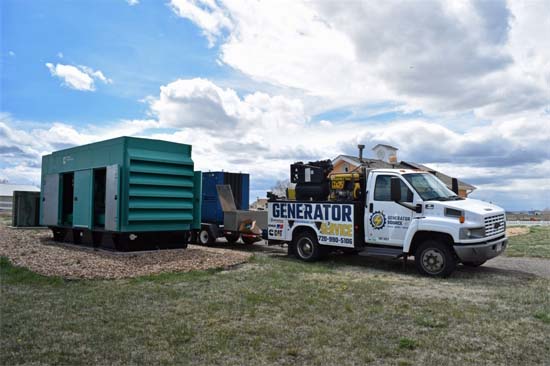Hospitality Industry & Required Emergency Power
The hospitality industry includes any business that provides services to both long-term and short-term customers or guests. NFPA determines and enforces emergency power requirements for this industry. This blog shares the basic requirements for various hospitality divisions.
Divisions of the Hospitality Industry
The hospitality industry boasted $1,600,000,000,000 US (1.6 trillion) in economic output in 2017, according to
SELECTUSA.gov. This industry can be divided into the following divisions:
- Food & Beverage - One of the largest divisions of the hospitality industry. Any business that prepares and/or serves meals, snacks, alcoholic and non-alcoholic beverages.
- Travel - Airports, train, and bus terminals all represent standard methods of transiting longer distances and include both business and leisure travel.
- Lodging - Hotels and motels are the largest of the lodging division. Some establishments feature rental cabins, cottages, or lodges within the property complex.
- Recreation - This division has many faces. Casinos are one form of the division that offers a possible payoff. Theaters, zoos, museums, and sports arenas are just a few examples of available types of recreation.
Resorts offer guests an all-inclusive experience. These businesses often offer packages that include all of the divisions of the hospitality industry. Amusement parks, ski, golf, spa, and luxury resorts are just a few on the list.
Each hospitality division is regulated and monitored by State and Federal Agencies for safe operation. Often, processes and procedures are evident to guests during the completion of typical day to day tasks.
Emergency power and its supporting systems are un-noticed by guests but offer power when the utility power fails. Emergency generators are not usually noticed until the power fails, and emergency or backup power is not available. Each building is constructed with required emergency or backup power generators. Emergency generators supply power to circuits that are critical for guest safety during a utility outage. Elevators and egress lighting are commonly on this circuit. Without emergency power, folks can be stranded in a dark elevator until power is restored.
Large resorts and complexes can install backup power systems. Partial or complete operation can be obtained, depending on the size of the backup system. All generators require maintenance and testing to ensure proper operation.
Maintenance, Testing, Troubleshooting & Repair

National Fire Protection Association (NFPA) is a global self-funded, non-profit organization. They strive to eliminate death, injury, property, and economic loss due to fire and electrical and related hazards. In most cases, membership is voluntary. However, state and federal agencies can mandate membership in their regulations.
NFPA 110 Standard for Emergency and Standby Power Systems Handbook defines maintenance and testing for generators. Following these procedures will identify upcoming issues and keep the generator in good working condition.
It is not uncommon to hear that a client was not aware of an installed outdoor generator for the building. Many times, this happens when the business transfers from one owner to the next. Often, the failed generator is discovered when utility power is lost. The lucky owner will experience only minor guest inconvenience, while the unlucky can experience a safety-related occurrence.
When a generator failure is discovered, an experienced technician is needed to employ the use of the latest tools to isolate the failed component. Industry-standard repair practices should be used for the issue at hand.
The best defense against generator failure is a good offense. This consists of an established maintenance and testing program. Generator Source has over 35 years of generator experience. We can provide a one-time troubleshooting and repair or maintenance service or develop a service contract designed to client needs. We also offer deinstallation/installation and decommissioning services.
Contact Us for more information or schedule maintenance and/or repair.
|
0 comments